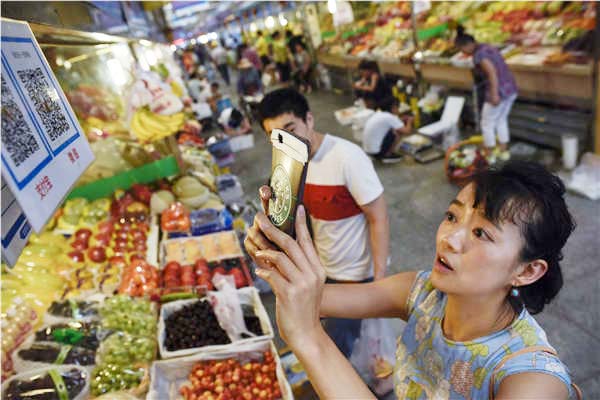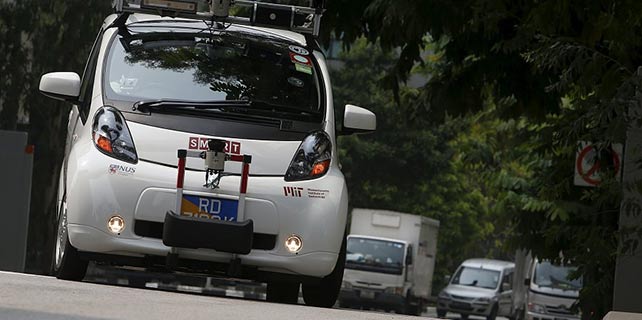Cashless trend takes hold in China
 |
|
China's lack of "credit card culture" has somewhat fueled the popularization of mobile payments, especially in small cities and underdeveloped areas. PHOTOS BY WANG ZHAO/AGENCE FRANCE-PRESSE |
Payment platforms run promotions to boost volumes
WeChat and Alipay, two major online payment platforms in China, call for consumers to go cashless and cardless in their daily life through promotions in August. Cashlessness is a new Chinese characteristic. In a recent report by Tencent, the Chongyang Institute for Financial Studies at Renmin University of China, and French market research firm Ipsos, 84 percent of Chinese were "comfortable" going out with only mobile phones, no cash.
Gao Jingwen, in her 20s, can hardly recall when she last paid in cash.
"I do not need cash in a restaurant, seeing a doctor, paying electricity and water bills. I cannot think of any place I cannot pay with my smartphone," she says.
Zhang Shucui, 67, always used to take a large amount of change when going to the wet market near her home in Beijing's Haidian District, but that time has gone.
"The QR code replaced the change basket in front of the stalls," she said. "Gone are the days when I had to search all my pockets for a coin."
Monday's report also showed more than 70 percent of the 6,500-plus respondents saying they could live more than a week with only 100 yuan ($15) in cash, and 52 percent only use cash for 20 percent of their total monthly consumption.
Mei Houdui, an electronic products dealer in Shenzhen, shared a recent "awkward" experience-he wanted to borrow some cash as pocket money for his child at a party, and failed as no one had any cash in their pockets.






















